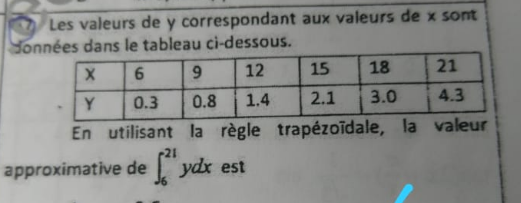
AllQuestion and Answers: Page 715
Question Number 147988 Answers: 1 Comments: 0
Question Number 147980 Answers: 1 Comments: 0
Question Number 147979 Answers: 1 Comments: 0
Question Number 147978 Answers: 2 Comments: 0
Question Number 147972 Answers: 0 Comments: 0
Question Number 147971 Answers: 0 Comments: 6
Question Number 147961 Answers: 0 Comments: 0

Question Number 147948 Answers: 1 Comments: 1

Question Number 147945 Answers: 1 Comments: 2
Question Number 147944 Answers: 1 Comments: 0
Question Number 147943 Answers: 0 Comments: 3
$$\int\:\frac{\left({x}^{\mathrm{2}} \:+\:{x}\right)^{\mathrm{2}} }{{x}\:+\:\mathrm{1}}\:=\:? \\ $$
Question Number 147942 Answers: 2 Comments: 0
Question Number 147941 Answers: 2 Comments: 0
Question Number 147936 Answers: 1 Comments: 0
Question Number 147934 Answers: 0 Comments: 0

Question Number 147933 Answers: 1 Comments: 0
Question Number 147932 Answers: 1 Comments: 0
Question Number 147918 Answers: 0 Comments: 2

Question Number 147921 Answers: 0 Comments: 1

Question Number 147915 Answers: 0 Comments: 2

Question Number 147914 Answers: 0 Comments: 0
Question Number 147913 Answers: 0 Comments: 0

Question Number 147906 Answers: 1 Comments: 0
Question Number 147905 Answers: 1 Comments: 0

Question Number 147904 Answers: 1 Comments: 0

Question Number 147895 Answers: 0 Comments: 0

Pg 710 Pg 711 Pg 712 Pg 713 Pg 714 Pg 715 Pg 716 Pg 717 Pg 718 Pg 719
